With the rise of Covid-19 in 2020, we all found out just how important it is to have a healthy immune system. With Covid still very much around in 2021, it’s more important than ever to make sure that our immune systems are ready to fight. So, what vitamins and supplements are best for boosting the immune system?
What is your immune system?
In the simplest terms, your immune system is your body’s natural defense system. It’s designed to defend the body against things like “bacteria, viruses, parasites, and even a fungus”. These are the things that tend to make us sick. Our immune system works hard year-round to try to prevent this from happening. If something does slip through, the immune system will produce white blood cells and other chemicals and proteins. The goal for the immune system is to find the antigen and stop it before it can reproduce.
How can you boost your immune system?
The absolute best way to boost your immune system is through a healthy, balanced diet over an extended period of time. Fresh fruits and vegetables are key parts of a healthy, balanced diet. It’s important to make sure that your body is getting all the vitamins, minerals, and nutrients it needs because the immune system is essentially fighting an invisible battle.
The key to a strong immune system is prevention, so consider preparing your body by replenishing it with the nutrients it requires. It can be done via taking supplements, a healthy diet, exercises, or IV therapies. Intravenous therapy helps prevent illness by strengthening the immune system and has many advantages over other methods. Mobile IV therapy can help fight infections and keep your body healthy. A mobile IV allows you to receive IV treatment from the comfort of your home or office, making it a great option for people who cannot leave their homes or work remotely. For those looking for mobile IV therapy in Texas or nearby, mobile IV Therapy in Austin TX is a quick and effective way to manage your health.

Prostock-studio/Shutterstock
Good sleep hygiene and regular exercise are also key components for immune system health. The best way to get your vitamins and minerals is from the food you eat rather than via a supplement or pill.
Best vitamins and supplements to add to your diet
Some vitamins and minerals are particularly beneficial for boosting the immune system. These are some of the most important ones to include in your diet if you’re looking to boost your immune system.
Vitamin C
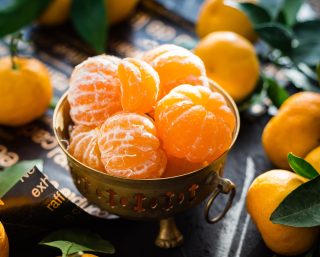
Pixabay
This is the vitamin we think of when it comes to boosting the immune system. Vitamin C is brilliant at preventing, or at least shortening, the span of infections. The body doesn’t naturally produce or store it, so you need to make sure to get enough on a daily basis. Though it is proven to help with recovery times when it comes to colds and flues, it has not yet been proven to have any benefit when it comes to COVID-19 (SARS-CoV-2).
According to Healthline, the recommended daily amount is 75 mg for women and 90 mg for men. In the case of supplements, don’t take more than 2000 mg daily.
Though citrus fruits are the best-known source of vitamin C, some other sources include:
- Spinach
- Bell Peppers
- Strawberries
- Papaya
Vitamin E
Vitamin E is a brilliant antioxidant and is thus, brilliant at helping the body fight off infection. It’s absolutely critical when it comes to the functioning of the immune system. In fact, it’s part of “nearly 200 biochemical reactions in your body”. It’s a fat-soluble vitamin which means that fat must be present in order for absorption to take place. Most nuts contain both vitamin E and healthy fats, meaning that the absorption process is much easier for the body.
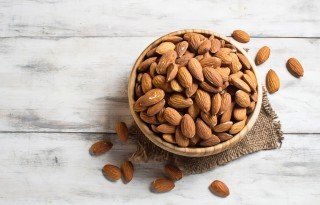
You shouldn’t have more than 15 mg of it per day. That equates to about half a cup of almonds (around 46 almonds).
To boost your vitamin E intake, include high-fat plant-based foods such as:
- Almonds
- Peanuts
- Peanut Butter
- Sunflower seeds
Vitamin A
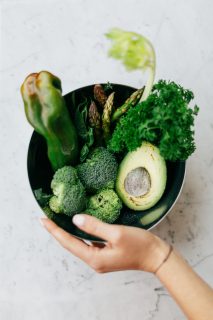
Photo by Daria Shevtsova from Pexels
Vitamin A is well known as an infection fighter. It comes in two forms: animal-based foods and plant carotenoids. Fish, meat, and dairy are all excellent sources of vitamin A. Tuna fish are one of the best animal-based sources of preformed vitamin A. It’s fat-soluble and can thus be stored in the body for use when needed.
Plant-based sources include
- Carrots
- Sweet potato
- Cantaloupe
- Butternut
- Dark leafy greens
Sulforaphane
Sulforaphane is a natural plant compound found in many cruciferous vegetables like broccoli, cabbage, cauliflower, and kale. It’s been linked to health benefits, such as improved heart health and digestion.
 Sulforaphane is a sulfur-rich compound found in cruciferous vegetables like broccoli, bok choy, and cabbage. It has been shown to provide powerful health benefits.
Sulforaphane is a sulfur-rich compound found in cruciferous vegetables like broccoli, bok choy, and cabbage. It has been shown to provide powerful health benefits.
In these foods, it’s in the inactive form glucoraphanin that belongs to the glucosinolate family of plant compounds.
Sulforaphane is activated when glucoraphanin comes into contact with myrosinase, a family of enzymes that play a role in the defense response of plants.
Myrosinase enzymes are only released and activated when a plant is damaged. Therefore, cruciferous vegetables must be cut, chopped, or chewed to release myrosinase and activate sulforaphane.
Raw vegetables have the highest levels of sulforaphane. One study found that raw broccoli had ten times more sulforaphane than cooked broccoli.
Hence, steaming vegetables for one to three minutes may be the best way to optimize sulforaphane levels when cooking.
Additionally, sulforaphane supplements are available for purchase at health food stores and online retailers.
These supplements are typically made from broccoli or broccoli sprout extract and are generally concentrated, containing more sulforaphane than what’s naturally found in food.
Glucoraphanin — the precursor to sulforaphane — supplements are also available combined with myrosinase for activation. These are marketed as a way of increasing sulforaphane production in your body.
Vitamin D
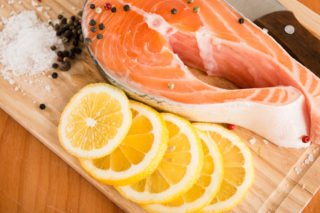
It’s most commonly known as the ‘sunshine vitamin’ and is one of the single most important nutrients when it comes to supporting the immune system. According to Healthline, it’s actually a steroid hormone that is “produced from cholesterol when your skin is exposed to the sun”. However, you can’t get enough of it from the sun alone. There are relatively few foods that contain this vitamin. It’s because of this that many people are deficient.
Food sources that contain vitamin D include:
- Salmon
- Tuna
- Mackerel
- Sardines
- Fortified foods
Zinc
When it comes to having a strong immune system, zinc is number one. If you’ve been more susceptible to colds and flu lately, zinc deficiency could be to blame. Note, though, that if you take a zinc supplement and you’re already supplementing it with iron, avoid taking them at the same time because they compete for absorption.
TIP Taking zinc supplements at the first sign of a cold may reduce its severity.
References:
https://www.webmd.com/a-to-z-guides/features/how-use-your-immune-system-stay-healthy
https://health.clevelandclinic.org/eat-these-foods-to-boost-your-immune-system/
https://health.clevelandclinic.org/how-almonds-can-improve-your-heart-health/
https://www.healthline.com/health/food-nutrition/foods-that-boost-the-immune-system#poultry


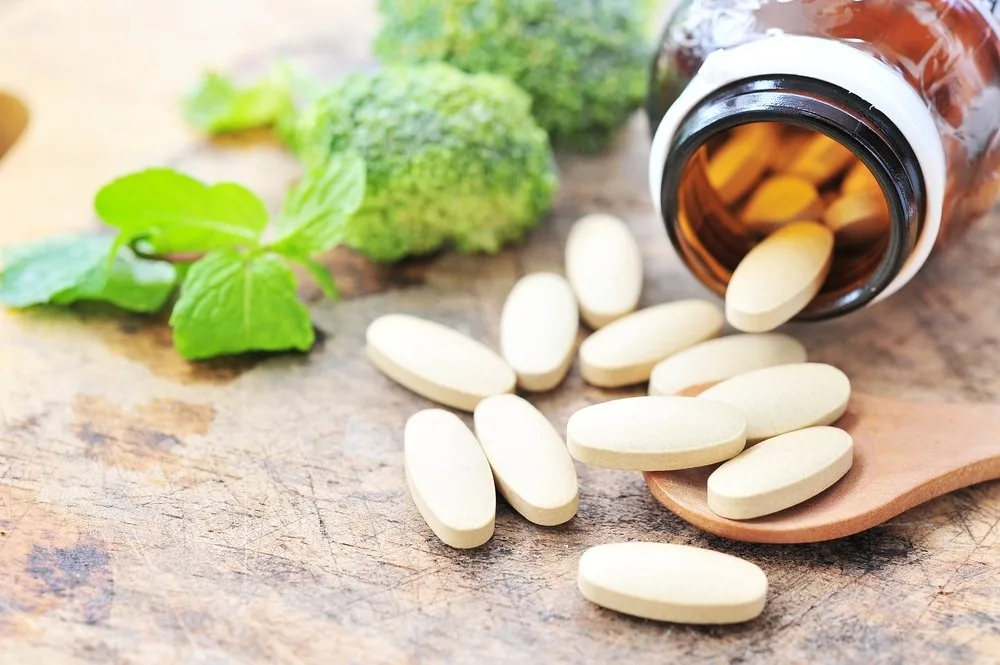
![women [longevity live]](https://longevitylive.com/wp-content/uploads/2020/01/photo-of-women-walking-down-the-street-1116984-100x100.jpg)










